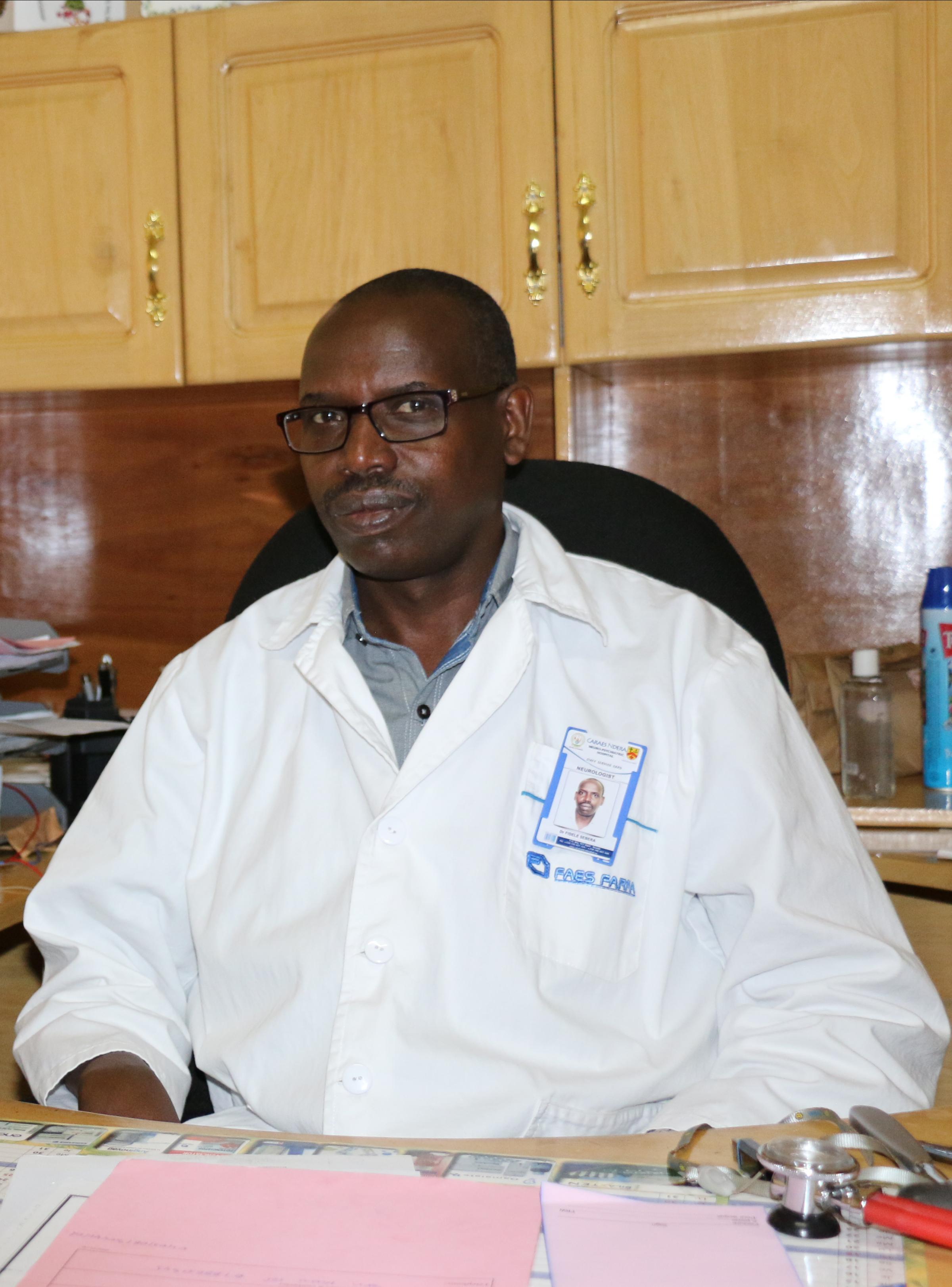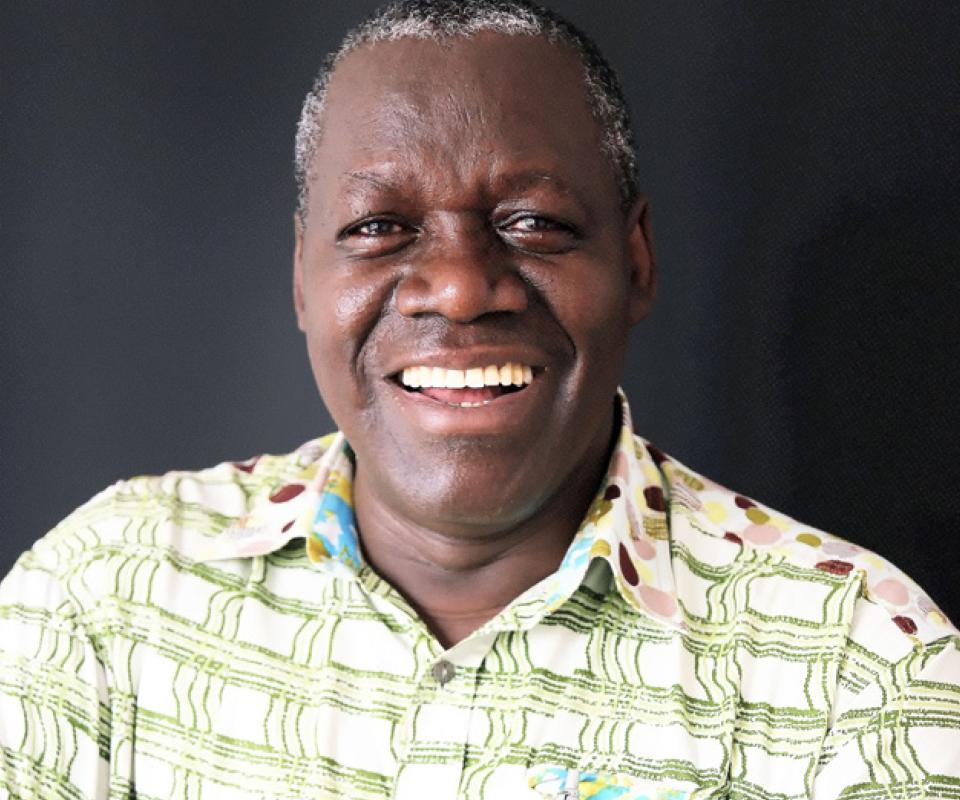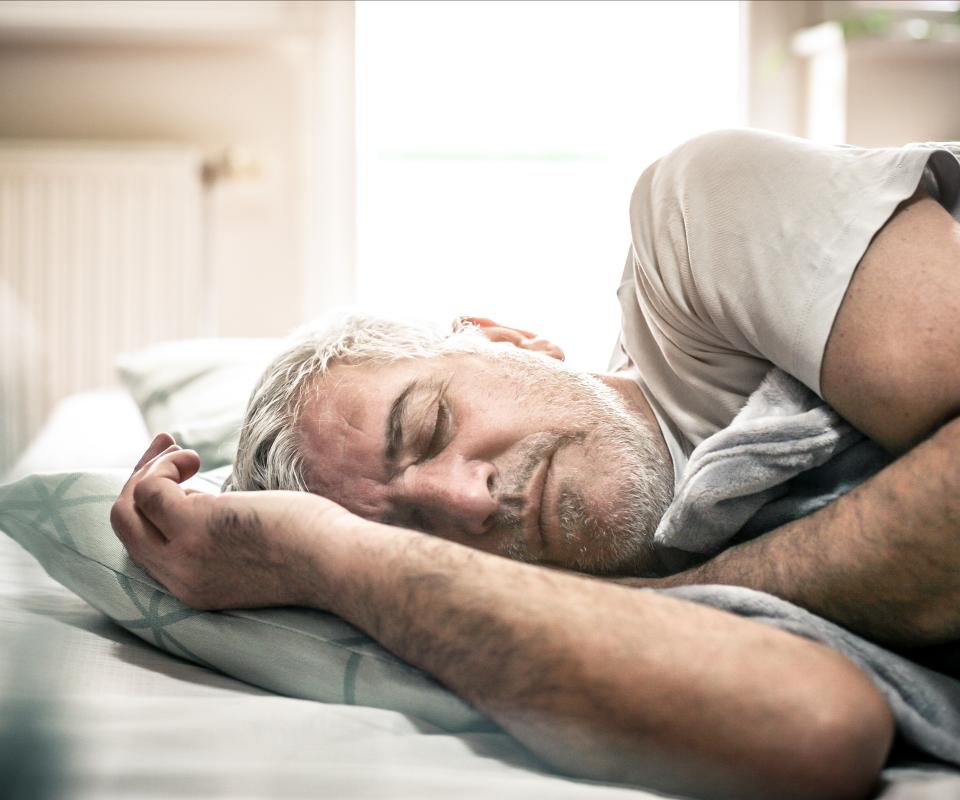
Bringing epilepsy out of the shadows in Rwanda
Rwanda has a higher than average incidence of epilepsy. In this country, however, the battle against the disease faces two obstacles: a lack of knowledge about the nature of the condition and a severe shortage of neurologists who can make an appropriate diagnosis and provide treatment. The UCB Societal Responsibility Fund, which is managed by the King Baudouin Foundation, is helping to overcome these two obstacles.
The initial spark behind this idea came from a former employee at pharmaceutical company UCB. While staying in Lubumbashi, where she was visiting family members, she was surprised to see how a man having an epileptic seizure was simply left alone. UCB specialises in immunology and neurological conditions, including epilepsy. She wanted to know whether her company could support projects, based on scientific evidence, to help patients with epilepsy in poor countries.
This became the mission of the UCB Corporate Societal Responsibility department. In 2013, after a few years of activity, the department contacted the King Baudouin Foundation for assistance with its administration, resulting in the creation of the UCB Societal Responsibility Fund. For twelve years UCB supported the neuropsychiatric centres run by the Brothers of Charity in Congo and across the border in Rwanda with their epilepsy consultations. One of the first priorities in Rwanda was to provide training for neurologists. When the Societal Responsibility Fund was created, the country had one neurologist, Dr. Fidèle Sebera, in a country with 11 million inhabitants.
A curse or poisoning
“My diary was crazy”, says Dr. Sebera on the telephone from Kigali. “Epilepsy has a relatively high incidence in Rwanda, but it is traditionally not viewed as a disease. For many Rwandans, epileptic seizures are due to a curse or attempted poisoning. Sometimes they think it is infectious. Patients with epilepsy are stigmatised, marginalised and shunned.” They only go to the doctor once their condition is very serious. Otherwise they seek help from traditional healers, who sometimes do more harm than good, at least in physical terms.
Health services and district hospitals did not have expertise in diagnosis and treatment or access to adequate medication to treat these patients appropriately. As the only neurologist in the country, based in the capital Kigali, Dr. Sebera was unable to do the impossible. “He has since been joined by two colleagues, one of whom was trained in Dakar, with help from the Fund. Today there are a further three Rwandan doctors being trained at Cheik anta Diop Universiteit in Dakar (Senegal)”, says Dr. Dirk Teuwen, head of Medical Sustainability at UCB.
Academic training
For Rwanda, having three neurologists represents progress. “Nevertheless, it is all too small scale”, says Dirk Teuwen. He therefore arranged a meeting between the UCB Societal Responsibility Fund and the Rwandan Government to work out a new project that would give a serious boost to the number of neurologists in Rwanda. That is what the Fund does: increasing human, medical and technical capacity through training, access to medication and technical resources and support for scientific research.
Dirk Teuwen developed an academic training course in Neurology for the University of Rwanda; he worked on the content with Professor Paul Boon, Head of Neurology at UZ Gent, and his colleagues. By 2025 to 2028 there should be a further sixteen neurologists working throughout the country. The Fund is also releasing a further 800,000 to 900,000 euros to help King Faisal Hospital in Kigali, where the country’s only public MRI scanner is located, to install meeting rooms, teaching rooms, a stroke unit and an EEG unit.
Raising awareness in the villages
In recent years work has also been done on providing epilepsy training for doctors in district hospitals and nursing staff in health centres. This has been done together with the Rwandan League against Epilepsy, which is chaired by Dr. Sebera, and with support from the Fund. Work has also been done to improve awareness in many villages. “In local communities, the key is to have health workers who we can teach about epilepsy so that they can provide information about the disease, identify cases in good time and refer them to a health centre or hospital”, says Dirk Teuwen. “Traditional health workers or ‘tradipracticiens’ are also being made aware of the basic principles of epilepsy.”
Depression
Finally, the UCB Societal Responsibility Fund also supports scientific research in Rwanda. In addition to epilepsy, work is also done on other neurological disorders such as stroke and Parkinson’s disease. Fidèle Sebera himself is currently finishing his doctorate on depression in patients with epilepsy; the Fund supported staff to do the field work because the neurologist himself was not able to manage it due to the pressure of numerous consultations and meetings. The extensive statistical analysis of the data from about one thousand patients was carried out in Belgium, also with support from the Fund.
“For many Rwandans, epileptic seizures are due to a curse or attempted poisoning. Patients are stigmatised, marginalised and shunned.”
“A total of 30 percent of patients with epilepsy also face depression”, says Dr. Fidèle Sebera. “The social and societal consequences of their epilepsy certainly contribute towards that. They do not seek treatment because of their depression. It is therefore important to identify them in good time so that we can treat both conditions and make sure these people are no longer forgotten.”
About the UCB Societal Responsibility Fund
The UCB Societal Responsibility Fund works to improve access to high-quality neurological care for people with epilepsy in low and middle income countries in Africa. Since its creation in 2013 the Fund has supported epilepsy-related projects involving four organisations in Rwanda, Uganda, DR Congo and Madagascar, with funding totalling 2.8 million euros.
Other stories
Inspiring engagement!

The experience that led to the role of liaison officer in Africa
Europe and International Africa
"You need integrity and curiosity."

‘South-South’ cooperation to provide better help for street children
Europe and International
“We are proposing a programme to humanise the street.”

Soft sound improves sleep quality in dementia
"On the one hand, poor sleep leads to additional problems for patients, which also affects their caregivers, often resulting in institutionalisation. On the other hand, we wonder whether poor-quality deep sleep could worsen the disease or perhaps even contribute to its development."